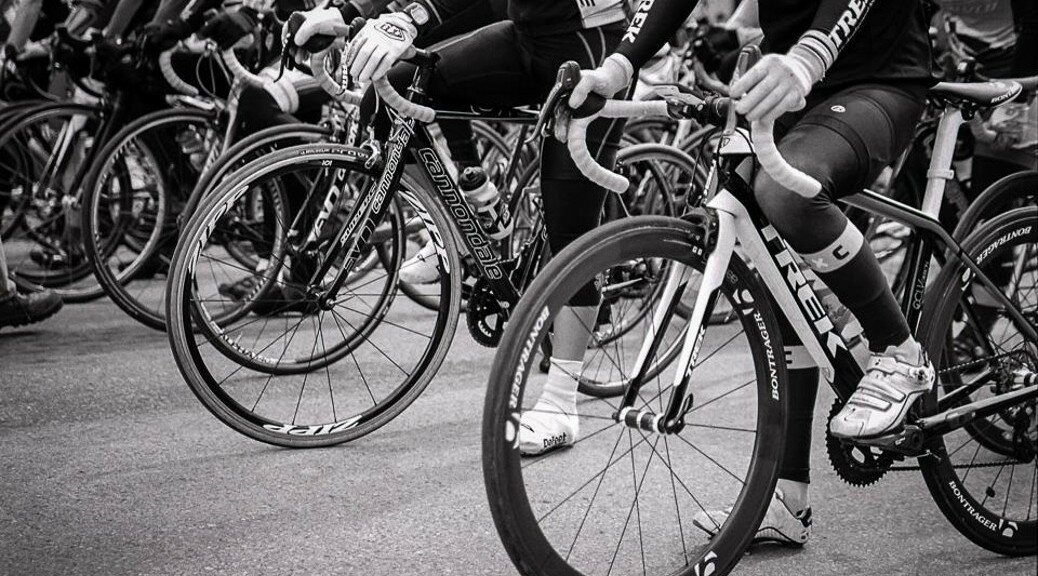Introduction
In the whirlwind of college life, where academic pursuits often take center stage, it's easy to overlook the immense potential for forging lasting friendships. Imagine a scenario where the thrill of cycling merges with the camaraderie of college, creating a recipe for lifelong connections. This is the world of collegiate cycling—a dynamic blend of athletic prowess and social interaction that goes beyond the campus confines. In this article, we'll delve into the remarkable social benefits of collegiate cycling, exploring how it has the power to foster friendships that endure far beyond the college years. If you want to more deeply explore the impact of collective sports and the relationship with increasing the level of socialization, including an analysis of the published results of sociological observations, we recommend that you buy sociology paper via https://essays-writer.net/sociology-essays/.
The Collegiate Cycling Experience
Collegiate cycling is more than just pedaling through picturesque landscapes. It's about being part of a community where cycling enthusiasts come together to train, compete, and revel in the joy of riding. Students who take up collegiate cycling become part of teams that represent their colleges in various cycling events. This provides a platform to not only showcase their skills but also to bond with like-minded individuals who share a passion for both cycling and the college experience.
Building Camaraderie: The Social Side of Cycling
Cycling creates an environment ripe for friendship formation. Shared experiences on the road—be it training rides, exhilarating races, or leisurely group outings—forge bonds that extend beyond the confines of the cycling track. The challenges faced during intense uphill climbs or the elation of crossing the finish line as a team create a unique camaraderie that's hard to replicate elsewhere.
Breaking Down Barriers: Inclusivity in Cycling
Cycling has a remarkable ability to transcend barriers, uniting individuals from diverse backgrounds. Whether you're a math whiz or an art aficionado, when you're on a bike, you're part of a larger cycling family. This shared passion breaks down social barriers, creating an inclusive environment where friendships are born from the love of the sport rather than superficial differences.
Team Spirit and Support
The bond between collegiate cycling teammates is unparalleled. These individuals train together, share victories and defeats, and provide mutual encouragement. The team becomes a second family, offering support not just in sports but in all aspects of college life. The shared goals and experiences strengthen these relationships, fostering an unbreakable bond.
Networking Beyond Campus
Collegiate cycling doesn't just stay within campus borders. Events and competitions allow students to connect with cyclists from other colleges and communities. This broadens social networks, exposing individuals to a diverse range of people who share the same passion. What starts as a college endeavor transforms into a lifelong network of friends spread across different corners of the cycling world.
Balancing Academics and Social Growth
Managing the demands of college academics and cycling requires careful time management. But this balance contributes to holistic growth. Cycling offers a reprieve from academic pressures, promoting physical well-being and mental clarity. The friendships formed on the cycling track provide a support system that aids in managing stress and maintaining equilibrium.
Lifelong Bonds: How Cycling Friendships Last
Cycling friendships are built to last. Beyond the college years, these connections thrive. Alumni networks centered around cycling keep former teammates and friends connected. Reunions become cycling-centric gatherings, reaffirming the bonds forged during those intense training sessions and exhilarating races.
Parental Perspectives: Supporting Cycling Enthusiast Children
For parents, supporting their children's involvement in collegiate cycling brings a mix of pride and concerns. However, the benefits are manifold. Cycling promotes physical fitness, discipline, time management, and teamwork. Parents find solace in knowing that their children are part of a supportive community that values health and camaraderie.
Cycling as a Family Activity
Cycling isn't limited to college students—it can be a family affair. Parents can engage in cycling activities with their children, creating opportunities for shared experiences and quality bonding time. Whether it's a leisurely weekend ride or a family cycling event, these activities foster connections that extend beyond the individual cyclist.
Safety and Wellness in Collegiate Cycling
Safety is paramount in collegiate cycling, both for students and parents' peace of mind. Helmets, proper equipment, and adherence to traffic rules are essential. Beyond safety, cycling contributes to overall wellness. It's a form of exercise that benefits physical health, while the sense of accomplishment and endorphins released contribute to mental well-being.
Conclusion
The world of collegiate cycling offers more than just a means of transportation—it's a gateway to friendships that withstand the test of time. From shared training sessions to crossing finish lines together, collegiate cycling nurtures bonds that extend beyond the college years. As you pedal through the scenic landscapes of both nature and college life, remember that the friendships you forge along the way are the true treasures of the journey. So, embrace the open road and the friendships it leads you to, for they are the threads that weave the fabric of a fulfilling life.

Pingback: The Morning Pride: March 28, 2014 | Omaha Free Press
Pingback: The Morning Pride: March 28, 2014
Pingback: Policies Are For Progress | ECCC Blogosphere
Pingback: Joining the Conversation | the T cycle